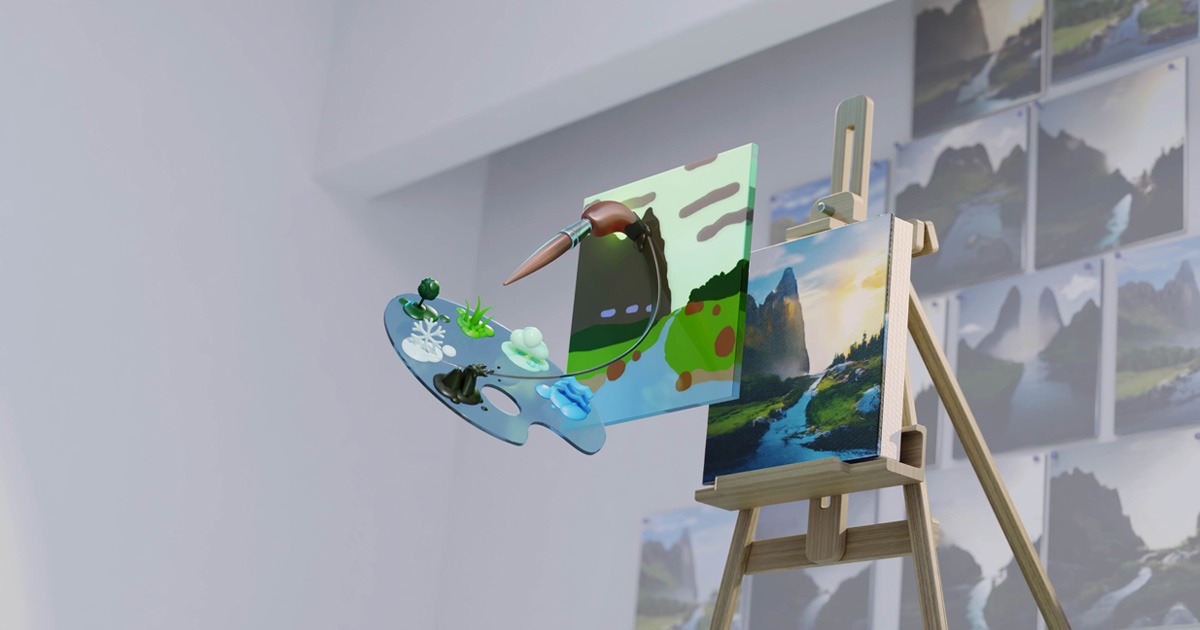Nvidia’s Game-Changing AI Image Personalization: The Perfusion Method
In the ever-evolving world of AI art creation, Nvidia has unveiled a revolutionary text-to-image personalization method called Perfusion. Unlike its heavyweight competitors, Perfusion stands out with its compact size of just 100KB and lightning-fast 4-minute training time. This cutting-edge AI tool allows unprecedented creative freedom, enabling users to portray personalized concepts while retaining their core identity. In this article, we delve into the fascinating world of Perfusion, exploring how it outperforms other AI art generators and how Nvidia’s innovative approach could give them a competitive edge.
Also Read: OpenAI to Launch Dall E-3: The Next-Gen AI Image Generator!

Key-Locking: The Heart of Perfusion’s Innovation
The key to Perfusion’s success lies in its novel “Key-Locking” technique. By linking specific concepts to broader categories during image generation, Perfusion can avoid overfitting and generate a wide range of creative versions while preserving the essence of the intended concept. This breakthrough allows users to personalize images with specific objects, like a cat or chair, while still maintaining the unique characteristics that define them.
Combining Personalized Concepts with Natural Interactions
Unlike existing AI art tools that learn concepts in isolation, Perfusion allows multiple personalized concepts to coexist in a single image with natural interactions. Users can guide the image creation process through text prompts, merging multiple concepts. This remarkable feature opens up exciting possibilities for artists and creatives to experiment and create unique visual masterpieces.

The Power of Flexibility and Customization
Perfusion’s compact size and efficiency empower users to control the balance between visual fidelity and textual alignment during the image generation process. By adjusting a single 100KB model, users can explore the Pareto front and select the optimal trade-off that suits their specific needs without the need for retraining. This level of customization sets Perfusion apart from its bulkier counterparts.
Also Read: Stability AI’s Stable Diffusion XL 1.0: A Breakthrough in AI Image Generation
Superior Visual Quality and Alignment
Nvidia claims that Perfusion produces superior visual quality and alignment to prompts compared to other leading AI techniques. While other AI image generators may offer fine-tuning options, their bulky size can be a drawback. In contrast, Perfusion’s efficiency enables targeted updates, allowing it to outperform larger models with precision and accuracy.

Nvidia’s Growing Focus on AI
As the demand for AI technologies surges, Nvidia strategically positions itself as a dominant player in the field. The company’s stock has soared, with its GPUs leading the way in training AI models. Nvidia’s innovative Perfusion model could give them an edge despite fierce competition from entities like Anthropic, Google, Microsoft, and Baidu in the generative AI realm.
Also Read: NVIDIA Builds AI SuperComputer DGX GH200
Our Say
Nvidia’s Perfusion is a game-changer in the world of AI art creation. With its compact size, lightning-fast training time, and unparalleled creative flexibility, Perfusion sets a new standard for image personalization. As Nvidia prepares to release the code for this groundbreaking technology, artists and creatives alike can look forward to unleashing their imagination and creating awe-inspiring visual experiences. As the AI landscape continues to evolve, Perfusion’s impact is bound to shape the future of AI art and unlock new possibilities for creative expression.








